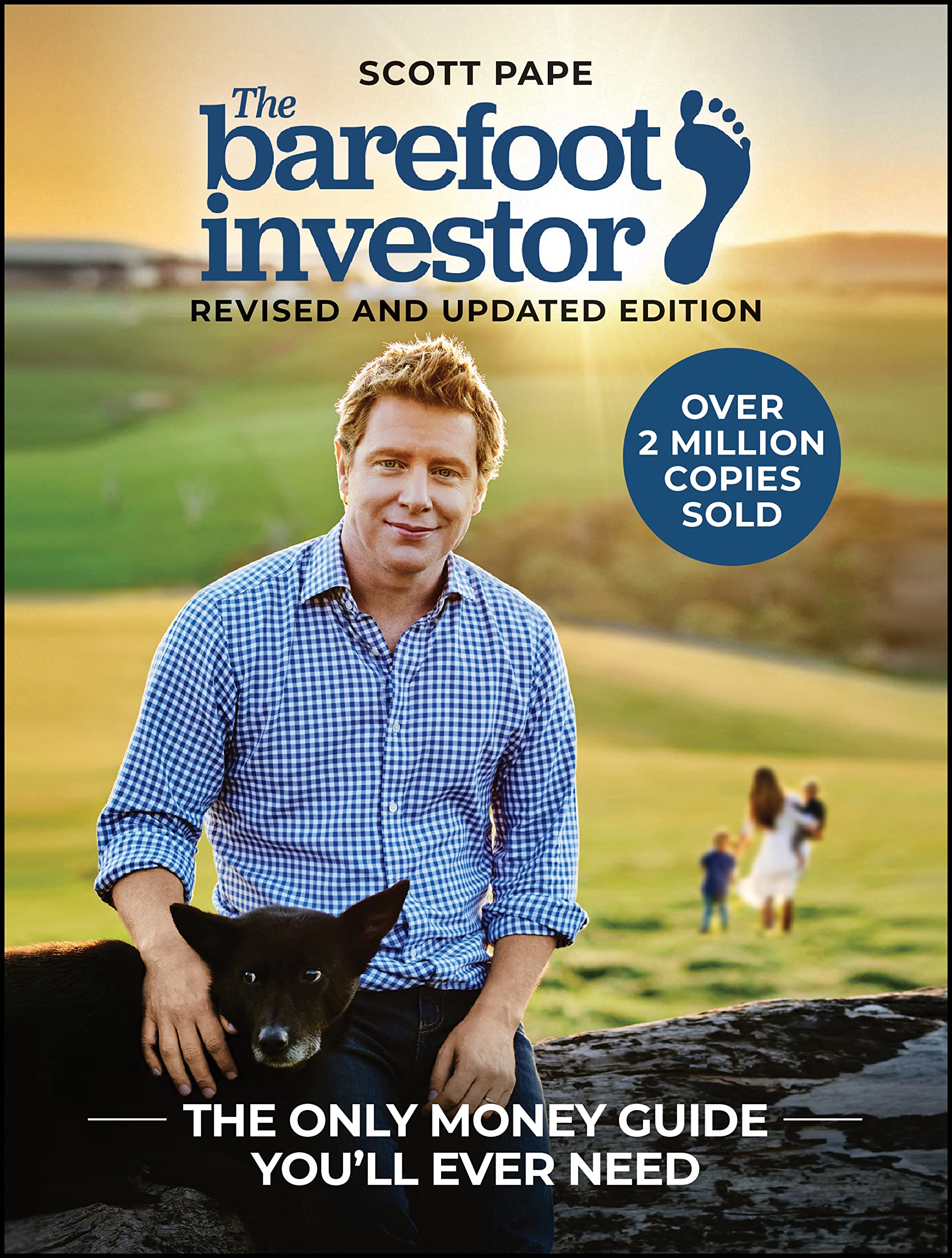Currently Empty: UGX 0

The Barefoot investor is a common name in personal finance —providing approaches to money management. It the money guide — you will ever need. The book details an entire financial plan so simple to guide your finances in a short-period.
He emphatically says, financial stability should not be a distant but unachievable aim. Arguably, it is easier not to think about finances. Why, because, the majority overwhelmingly struggle with finances. Please, face it. You can choose to hide account, the bank statement and not to discuss about money at all but you’ve got to deal with some finances anyway.
Let’s navigate his perspectives;
Empowerment Through Simplicity and Discipline
Scott Pape emphasizes that achieving financial stability is accessible for everyone, regardless of income or starting point. The key lies in taking control, adopting sustainable habits, and making small but consistent changes. Pape advocates for a pragmatic, straightforward approach—breaking down complex financial concepts into manageable steps to foster confidence and long-term security.
At the center of this, is discipline and early action. He stresses that quick fixes and extreme sacrifices are often ineffective and unsustainable. Instead, small, deliberate adjustments—like opening multiple bank accounts for different purposes—lay the foundation for financial health. This organized system simplifies money management, reduces stress, and facilitates saving and investing.
The Power of Multiple Bank Accounts
Pape recommends establishing five distinct accounts, each with a specific purpose, to streamline your financial flow:
- Daily expenses: Covering rent, bills, groceries, and essentials. Typically, 60% of income should go here.
- Treat (Fun): For entertainment and indulgences, with 10% allocated monthly.
- Holiday fund: Saving 10% for vacations or special experiences.
- Fire extinguisher (emergency fund): For unexpected expenses or debt repayment, receiving 10%.
- Retirement (Mojo): 10% Long-term savings, invested conservatively for future security.
This system ensures regular disciplined savings and prevents unnecessary debt accumulation, fostering a mindset of responsible money management.
Debt Reduction: The First Priority
Debt is highlighted as the greatest obstacle to financial independence. Pape advises cutting up credit cards to eliminate temptation and focusing on paying off existing debts through targeted strategies. Negotiating lower interest rates and consolidating or paying off debts systematically enables rapid progress.
Once debts are cleared, attention shifts to empowering future wealth through disciplined saving and investing. Living modestly—selling depreciating assets like a paid-off car or avoiding unnecessary luxury homes—frees up capital for purposeful investments.
Investing for Growth and Security
Investment is presented as essential, achievable, and not reserved for the wealthy. The primary recommendation is investing in low-cost index funds that track the 500 largest companies. Warren Buffett’s strategy of allocating 90% of his estate to index funds is used as a testament to their effectiveness, especially over the long term.
Fundamentally, investing should be a disciplined, automated process—reinvesting dividends and regularly contributing to your “grow bucket”—ensuring your money works for you. The power of compounding, along with market resilience over centuries, confirms that consistent investing provides a safe pathway to wealth.
Long-Term Planning and Home Ownership
Beyond savings and investing, Pape encourages strategic planning around property and major assets. Using systematic savings and debt reduction, owners can accelerate mortgage repayment or save for a deposit. Automating these processes reduces decision fatigue and aligns with a disciplined approach.
Creating a Wealth-Building Mindset
Underlying all advice is the importance of setting a positive example, especially for children, by living debt-free and making prudent financial choices. Such discipline breeds happiness, stability, and the freedom to focus on meaningful experiences rather than financial stress.
Conclusion: Building Wealth Step by Step
Building Wealth can be a step by step. Revenue from regular savings, disciplined debt management, and smart investments together form a comprehensive blueprint for financial independence. Pape’s message is clear: wealth isn’t about what you own temporarily, but how much money is working for you in the long run.
Achieving this stability requires patience, persistence, and the willingness to start now—no matter your current circumstances. As he asserts, with discipline and the right strategies, everyone can build a secure financial future, where money supports a full, happy life.



